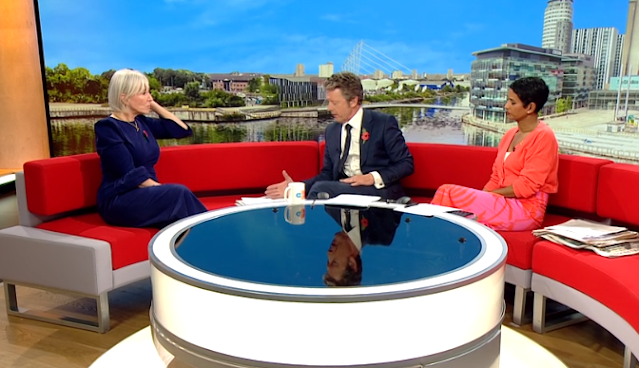In her latest book, The Plot, Nadine Dorries, a former British culture secretary and staunch ally of Boris Johnson, alleges that British politics is controlled by a shady faction known as "the Movement." This group is said to have been at the heart of the Conservative Party for more than 20 years, pulling strings, pushing agendas, and toppling leaders.
Dorries names some members of the alleged group, but disguises others with nicknames. One of the most intriguing figures is Dr. No, a sinister character who is said to have had a hand in undermining past prime ministers, including Johnson and Liz Truss.
According to the book, Dr. No is paid by the Conservative Party, has a pass to Downing Street, and "Rishi Sunak doesn't move without first seeking his advice." He is described as "a man with a secretive past" who "loves violence" and who once chopped up a pet rabbit after breaking up with a girlfriend.
There is also a claim that he tried to set fire to a house when people were sleeping inside.
Since the book's publication, Westminster has been rife with speculation about the identity of Dr. No. All manner of names are being bandied about, but so far Dorries has refused to identify him.
She has dropped a few hints, however. Speaking to BBC Breakfast, she said that Dr. No is part of a "small group of men" who have "been involved with the party since the late 1990s - at every stage, whether Theresa May, David Cameron, Iain Duncan Smith."
"Liz Truss is the only person who didn't have any of them close to her because she knew about them."
Dorries says the group has its origins in the Federation of Conservative Students, an organisation closed down in 1986 by then party chairman Norman Tebbit because of its radical views and occasionally raucous behaviour.
While Dr. No is not named in the book, others are. Dorries says that Levelling Up Secretary Michael Gove, ex-No 10 senior adviser Dominic Cummings, and Conservative Party adviser Dougie Smith are all part of the club. Smith is also the husband of Munira Mirza, a close ally of Boris Johnson, until she quit.
Given Dorries' claims that Dr. No is responsible for undermining democracy, why doesn't she name him?
She has said that she didn't believe Dr. No would have sued her, but instead would have put an injunction on the book. She insisted that the book would have "passed" that process, but that it would have delayed publication by six to nine months, and that she wanted it out as quickly as possible.
She added that it was probably "the most legalled book since Spycatcher," the memoir of a former MI5 officer which, among other revelations, describes a plot to remove Harold Wilson as prime minister.
Unless Dorries does decide to name Dr. No, the debate about his identity will continue to rage. Could it turn out to be the person everyone least suspects, like Keyser Söze in the film The Usual Suspects? Or maybe it is a collective term for a group of people, Murder on the Orient Express-style?
Or perhaps, as some have suggested, it is purely a plot device created from the imagination of Ms. Dorries, who, as has been pointed out, is a successful writer of novels.
Only time will tell if we ever learn the true identity of Dr. No. But one thing is for sure: his story has captured the public's imagination, and it is a reminder that the world of politics can be just as dark and mysterious as any spy thriller.

Post a Comment
0 Comments